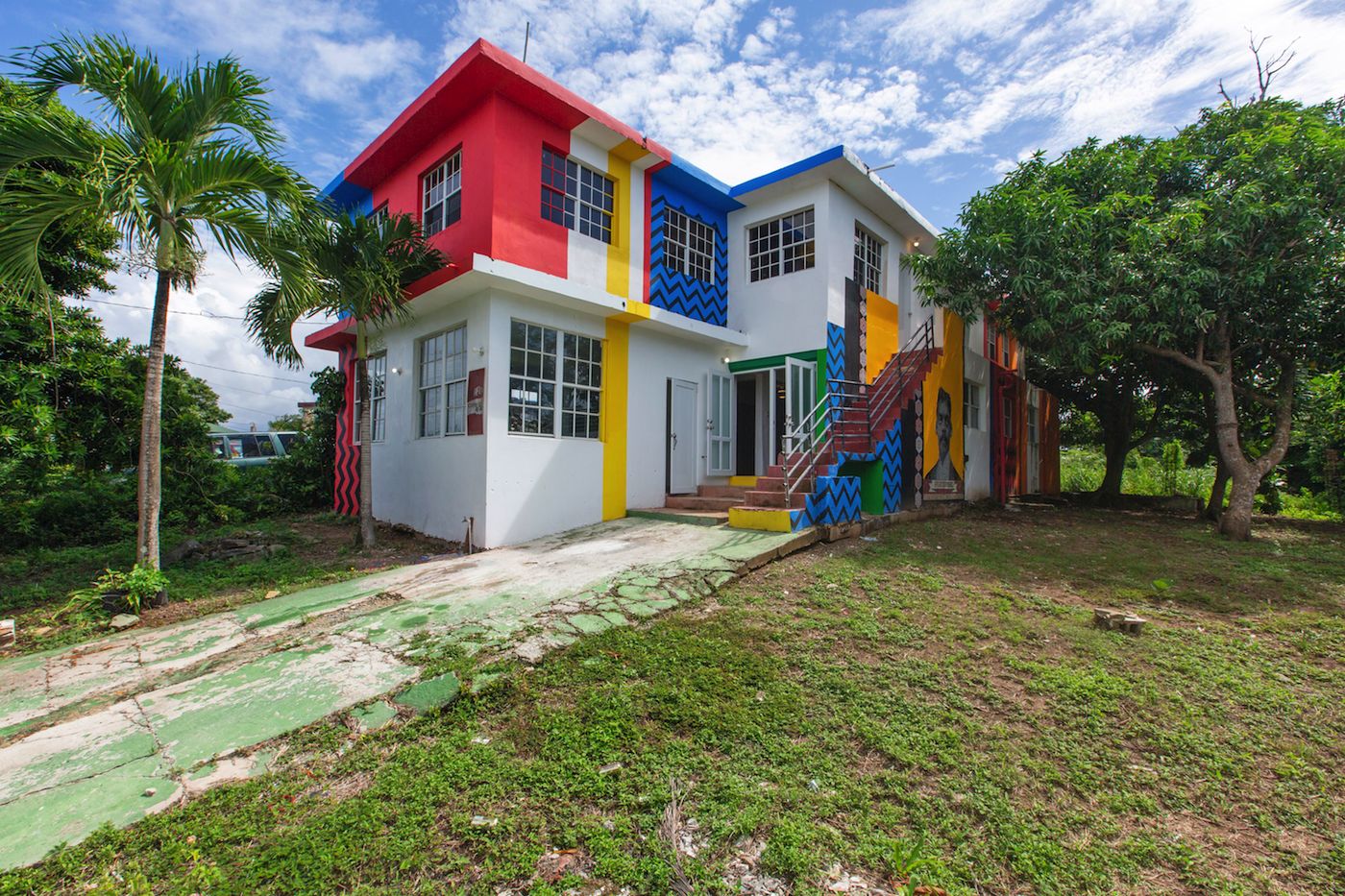
02 Nov Taking Control of Your Own Story
Corredor Afro, a new art space in Loíza, Puerto Rico, wants to establish creative and artistic links between the African Diaspora and Africa. C& América Latina talked to Marta Moreno Vega, professor, curator and ex director of the Museo del Barrio in New York. Together with sociologist Maricruz Rivera Clemente, Moreno Vega has founded Corredor Afro.
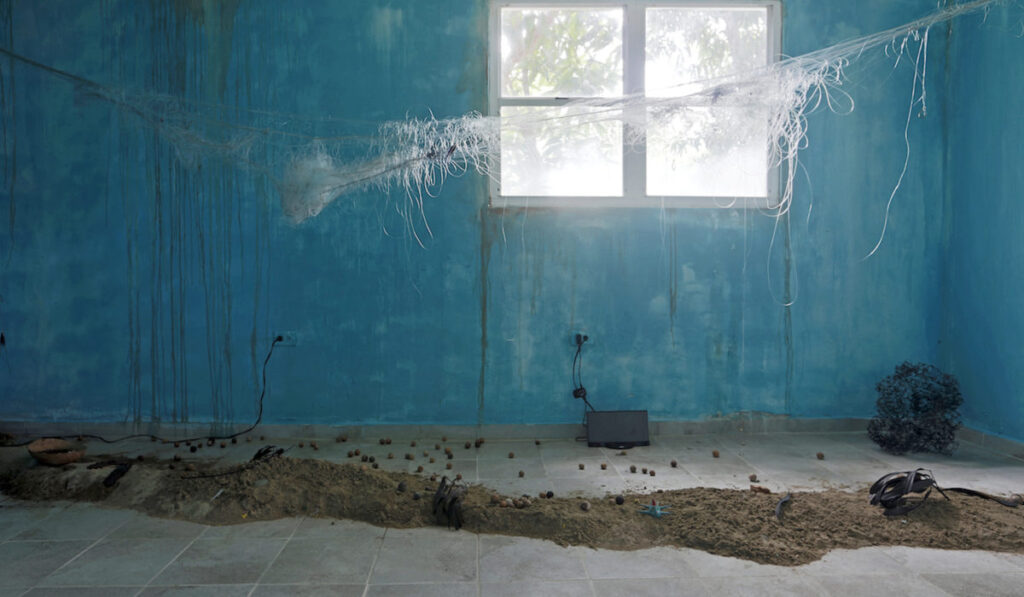
Lisa C Soto, installation in Corredor Afro, Loíza, Puerto Rico. Courtesy of Corredor Afro. 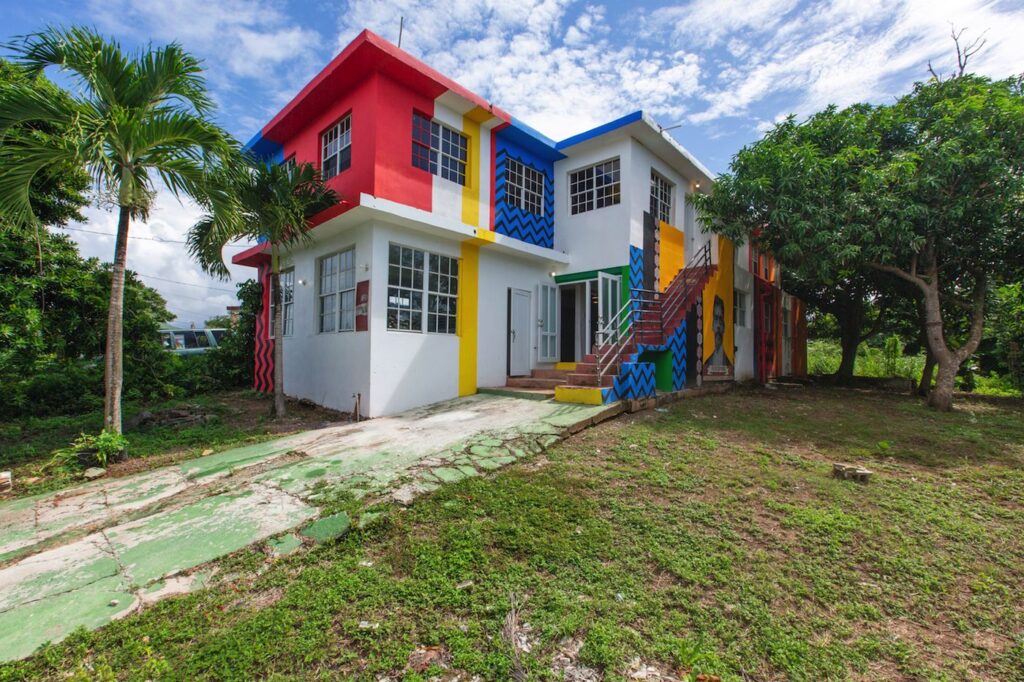
Corredor Afro, Loíza, Puerto Rico. Courtesy of Corredor Afro. 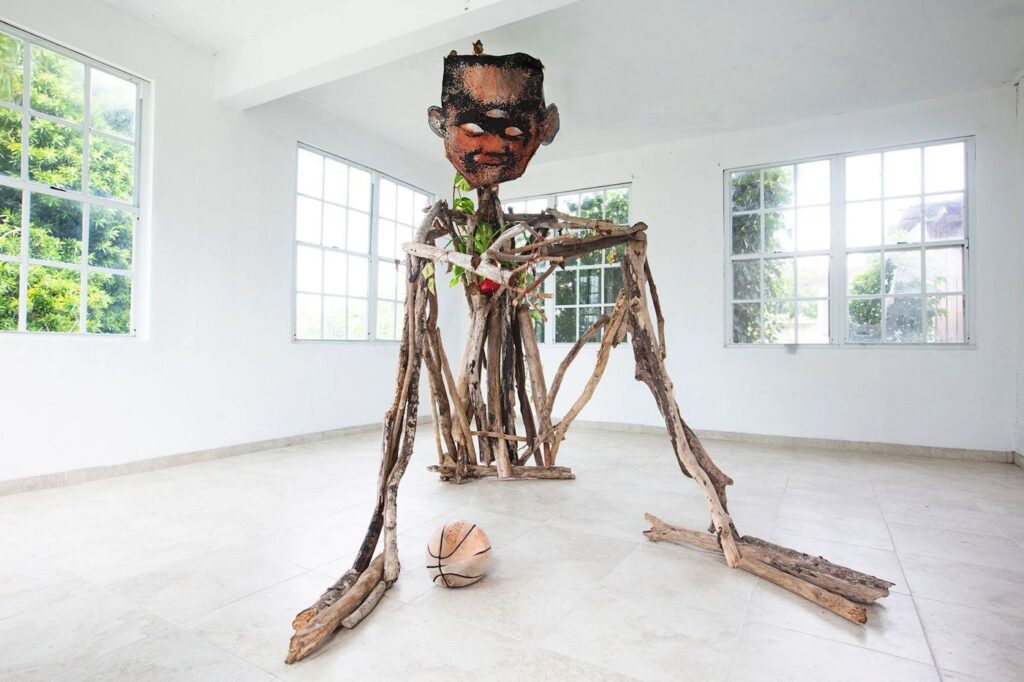
Corredor Afro, Loíza, Puerto Rico, with a work by Celso Gonzáles. Courtesy of Corredor Afro.
C&AL: What is Corredor Afro and what is the importance of having this space in Loiza?
Marta Moreno Vega: It goes between the professional and the personal. My dad and grandmother were born in Loiza. Throughout my history, I have been bringing my children to Loiza. I was born in El Barrio in Manhattan, New York, so it was very important that my children understood they had roots here in Puerto Rico.
As the director of El Museo del Barrio, I deep dived into learning the history and the traditions, meeting artists, educators, researchers, and understanding the history of Puert Rico. That process developed into a love affair with the island. I like to think of Corredor Afro as a crossroads. The idea is to bridge the pieces of the puzzle that have been distributed around the world because of enslavement and before enslavement, understanding the accomplishments our people have made around the world. Look for example at the documentation that has yet to be fully embraced, let’s say the work of Ivan Van Sertima, They Came Before Columbus (1976). His book shows that there were Africans in the Americas before enslavement. Making those intelligences that keep being marginalized central to the discussion, aesthetic and vocabulary that we use as an African people.
Corredor is a local and international multi use space that will include a gallery, and host silkscreen, mosaic and ceramic workshops; the upstairs will have an artist residency and research residency. It’s a cross section, multidisciplinary and anthropological in terms of its vision, looking at centering an African aesthetic and thought process that is global. How does one do that? The interconnecting of different intelligences and different people with different skills is the way and the core of Corredor Afro.
C&AL: What is the concept of Corredor Afro’s first official collective exhibition beginning at the end of October 2020?
MMV: We had an introductory event, which included an exhibition a year ago so this is technically our second. The theme on this next exhibition, curated by Celso Gonzalez (Puerto Rican muralist), is on centering Blackness. The title of the show is Blackness (NEGRO/A/X Creative Art Justice!). It is calling it, it is not mincing words, this is about African descendancy and you being part of that. The show will represent multi-disciplinary creative processes with artists like Las Nietas de Nonó, Daniel Lind, Celso Gonzáles, Nancy Meléndez, Lisa C Soto, Papo Colo and more. The online opening will include an art performance by Awilda Sterling, and music by the Bomba music group Majestad Negra, founded by Maricruz Rivera Clemente.
C&AL: What plans do you have for the future of Corredor Afro?
MMV: We are very clear that we don’t want to replicate what already exists. At the base line, Corredor Afro is a think tank, it’s bringing creative thought to what is needed for our community. I am against building institutions that have to fit into a funder’s criterion. This is an opportunity to think out of the box, decolonize a process, decolonize our minds. I am very pleased that Ghana and Senegal are developing museums, but at this time in my life I am wary of museums. I understand that they are important to preserve artifacts; I understand that it is important for Africa to reclaim that which has been stolen and put it in a safe place; but I am also very conscious that museums are places that have been complicit with hierarchy, colonization and places where the rape of our cultures and artifacts has happened. My hope is that we don’t replicate that, because even if it is replicated in an African style, it is still colonization, it is still devoid of spirit. I don’t think we want to be a replica of what has raped us. The intention for Corredor Afro is creating a creative, innovative process of development – and we have to understand it as a process.
I feel that, as we build together with people who believe in what we are trying to do, it will attract whatever we need to attract in order to continue. If we are going to break out of being colonial subjects, we have to be free thinkers that can analyze, that can critically think and break bondages that have been instilled over time. So that is this process.
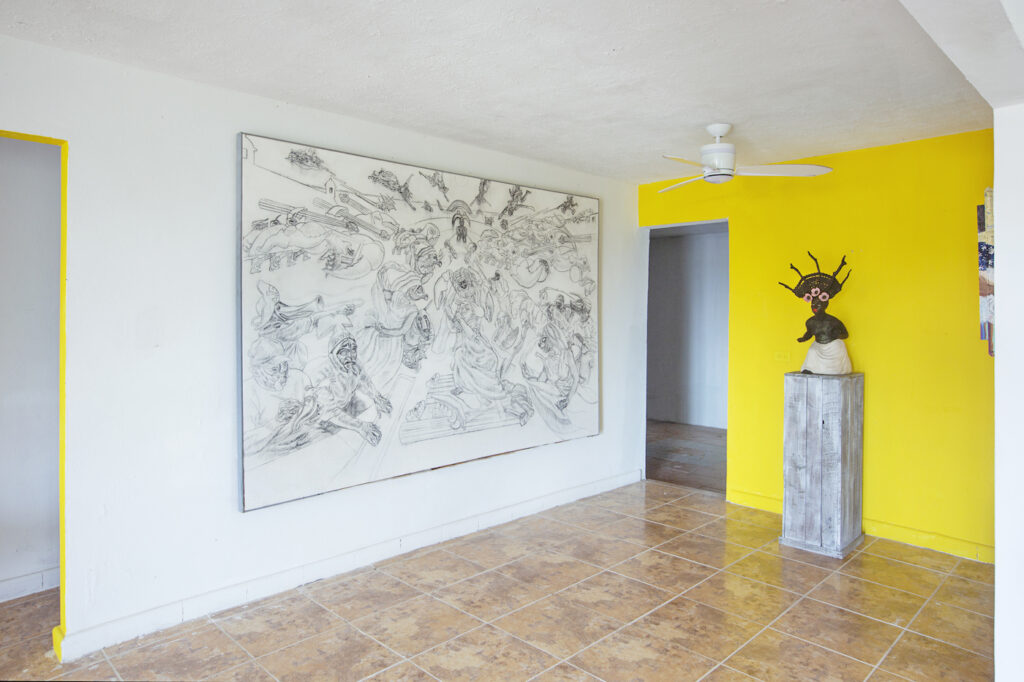
C&AL: How is the art situation on the island today? How has the art scene suffered under the COVID-19 pandemic?
MMV: It was difficult before and it’s in a heightened economic strait now with the pandemic and lack of tourism. In Puerto Rico and in the United States museums are letting employees go – and most of them are letting go of their education department. How ignorant the staff and directorship of museums are! Education is at the ground level of anything historical, racial, global, and diverse. Under the pandemic, these education departments, which introduce racial and cultural diversity are now being eliminated. It is like an elastic band discussing cultural inclusion one minute by including education and culture etc., you let go of the band and it goes back to what it was, overt Eurocentric dominance.

This is why creating community based institutions is critical; we need to develop and sustain spaces of historical correctness and creative expression that honors our legacy and aesthetic vision. We need to hear from our community leaders, scholars, sacred leaders and artists addressing our philosophical and aesthetic mission and vision. We must not allow our legacy to be erased or defined by others. In creating our institutions the valuing of who we were, are and are to become is our responsibility.
Marta Moreno Vega, an educator and Professor of African and Latino studies, served as the second director of Museo del Barrio in 1969 and co-curated the exhibition 500 Years of Puerto Rican Art in both El Museo and The Metropolitan Museum of Art. She was a founder of the Association of Hispanic Arts and a Senior Rockefeller Fellow recipient that led to establishing the Caribbean Cultural Center in 1974. She stepped down from her directorship three years ago to live in Puerto Rico full-time. Maricruz Rivera Clemente, co-founder of Corredor Afro, also created Corporación Piñones se Integra (COPI), an Afro-Puerto-Rican-based institution capturing the stories, history and intelligences of the Piñones neighbourhood in Loíza for the past twenty years.
Lisa C Soto is a visual artist and author who was born in Los Angeles, California and grew up in New York and in a traditional town in southern Spain. Her Caribbean heritage and her continuous displacement between continents and islands have informed her artistic production.
Fuente: https://amlatina.contemporaryand.com/editorial/corredor-afro-marta-moreno-vega/


